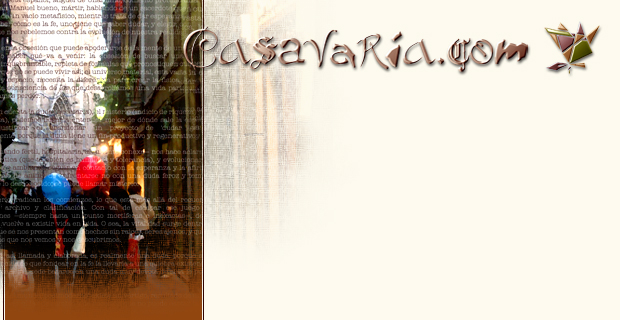A TREATISE ON WAR
War, though often supported by great concepts and humanitarian ideals, is the intentional infliction of pain on one population by representatives of another (or by two populations on each other). It is rhetorical violence, aimed at persuading an adversary to abide by one's wishes through imposed devastation. War, in its best form, is a gamble: that before 'too many' people die, a settlement will be reached.
There are gambles worth taking, such as those involving faith in democracy, hope or imagination, those that involve the direct recourse to peace settlements and diplomacy. And there are those gambles that mirror the worst of a society's underworld: brutal, unimaginative, last-resort, entirely beyond the bounds of normal legal function, destructive en masse, gambles which entail the sacrifice of important freedoms and which are often entered into as a justification to suspend democratic procedures.
Any society that resorts to war, no matter the evil or aggression of its opponent, makes a deliberate decision to kill for power. There is nothing morally superior about choosing war; it is a sign of colossal moral failure. The courage of individuals to enter the fray, to sacrifice themselves to the protection of others, of ideals, of an innocent population may be virtuous. And clearly, such examples can occur within the context of the worst, most tragic and despicable conflicts, but the process to which such heroes sacrifice themselves still leads to the deliberate, even systematic torment of another population, the majority of whom will inevitably be innocent of all offense.
This is why we have law, to prevent suffering and to punish those who inflict it.
It may be that we will never see a day when the better values of our culture aren't challenged by some ambitious rogue dictator or other unscrupulous power. It may be that many unacceptable consequences will always stem from uncontested aggression, so that there is, in a sense, no better choice than to wage war. It may be that war, because of the fear bound up with it at every level and in all directions, will always be an easy political power-play (wherein politicos push the idea that only amoral or immoral people would not support war, to protect against or forestall imminent atrocities). But it will certainly always be true that all of these arguments against the enemy (which militate in favor of war) also serve as arguments against us (so to militate against war).
War is at best the most morally untenable of all human activities (barring slavery, which in itself is a form of warfare, or strategic torment), a consequence of unfettered, recklessly aggressive competition, and the one worst-case scenario against which all civil structures are erected. As such, every foray into war shakes a society (especially a democracy) to its very foundations, plunging order and civility into a quagmire of chaos and assault.
Though it can be said that just wars have as an end the achievement of peace and justice, all wars begin this way, with precisely that sway being held over a warring population, to maintain engagement and support. In all wars, just or aggressive, the method is violence, destruction and the imposition of mortal fear. The result is not a series of 'clean strikes' and strategic 'demolition projects', but the savage destruction of human flesh. The result is the spilling of blood, the tearing of bodies limb from limb, the life's work of real minds, accumulated consciousness of individual experiences, lives in full… obliterated! Ended! Brains, veins, trains of thought and feeling ripped apart by explosions impossible to survive.
This is not an apocryphal or peacenik interpretation of war: it is the intentional and stated fact of war, as a method of conflict resolution. The bravest and most praiseworthy defenders of freedom, justice, protectors of the innocent and the good, can testify (and have) about the unmitigated horror of war, for both sides, for besieged civilian populations.
War is an act of power, or an attempt to seize it. It is the catastrophic interruption of the everyday freedom inherent in civilized human living. As we witnessed in New York City, in Washington and Pennsylvania, on September 11, 2001, war shatters the steady navigation of life as one chooses to live it in freedom. The possession of power, however, need not mean a constant resort to force. The ultimate expression of power is mercy, deference to the real and innate value of life, the luxury of spending more time, working harder, finding better solutions. Real power allows the side of right to outsmart the brutal aggressors of the world, without resort to violent actions of any kind.
A passion for war, no matter how much suffering has brought one to it, is necessarily based on putting one's faith in the worst aspects of human endeavor. It may, at times, represent a strictly defensive last-resort. In any other case, it represents a deliberate adoption of torment-for-gain. As such, it is incumbent upon all democratic societies, and every citizen of the world, to defend the rule of law and the need for peace-first policies that imagine sound diplomatic solutions, instead of the simplistic and dangerous thinking that supports programs of brute force and intimidation. It is among the highest responsibilities of all democratic leaders to take real and creative (legal) actions to find peaceful solutions for difficult problems. All wars, by their very nature, produce only dehumanization, suffering, and loss on all sides. What is built in their aftermath is built by entirely different hands than those that fight, and often could have been built in lieu of conflict itself.
© 2002 Joseph Robertson
![]()
All text & images Copyright © 1995-2008 Casavaria,
or listed contributor :: Casavaria Languages: Català | English | Español | Français | Galego | Italiano | Português | Svenska










